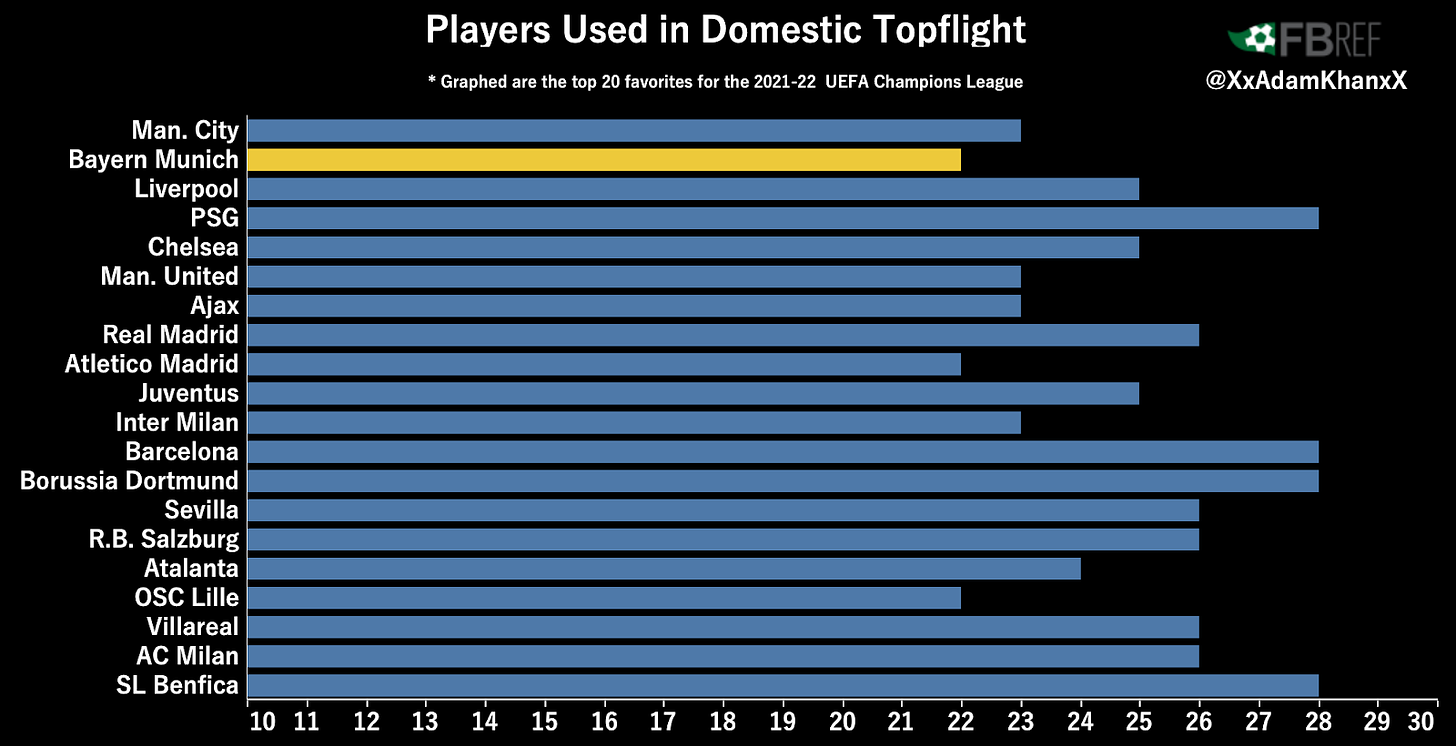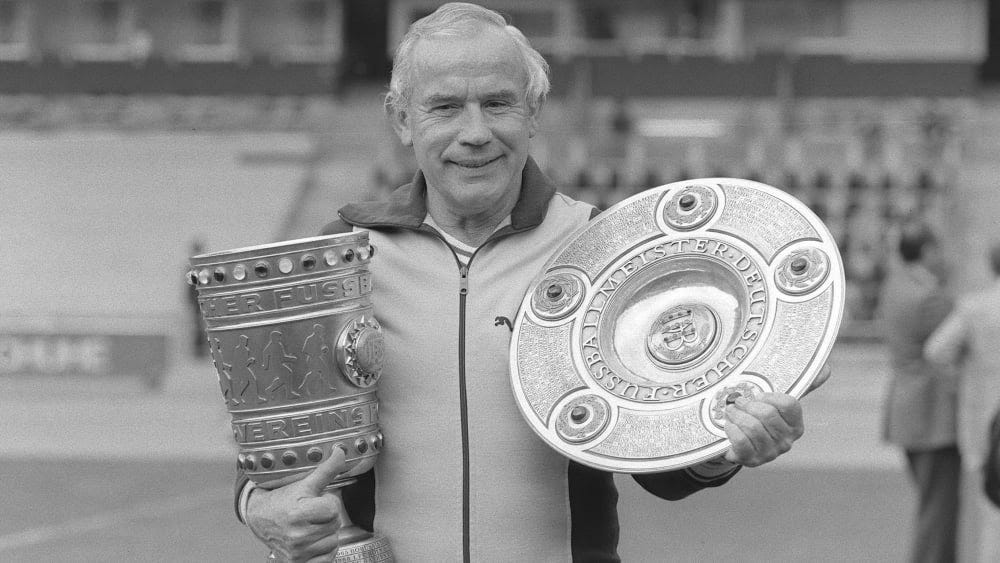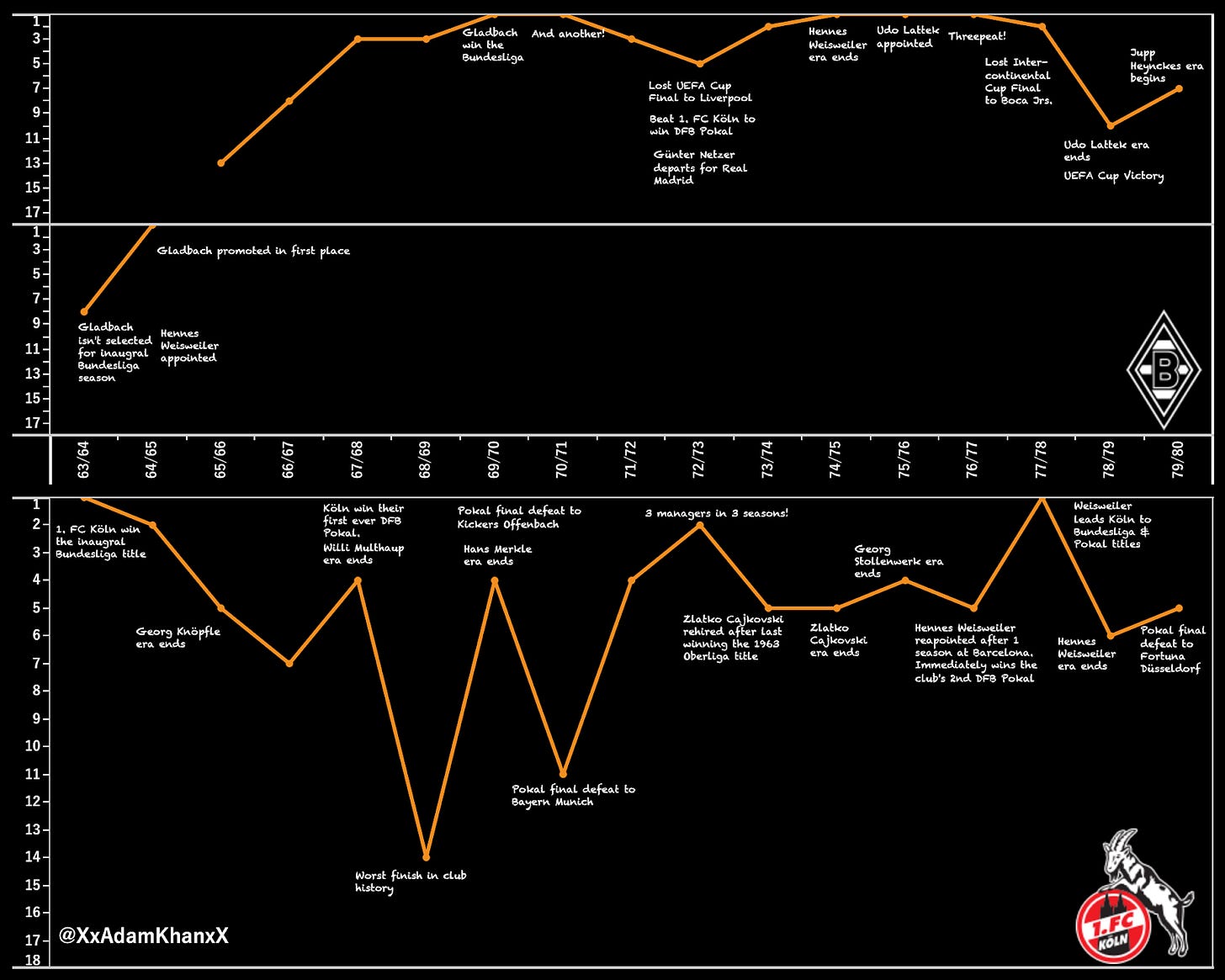ISSUE #13: A Bump in the Road for Nagelsmann's FC Bayern
After a solid start with flawless victories, Bayern are now leaking goals at an unprecedented rate. Where’s it going wrong for Nagelsmann’s side?
Despite sitting top of the Bundesliga and through to knockout stages in the Champions League, the mood at the Sabener Straße is far from relaxed.
Following the 2:1 defeat to Augsburg, Julian Nagelsmann went on to lament his frustrations in the post-match TV rounds, throwing out statements like "for the first time as Bayern coach am I really mad" and, “loving to win is one thing, but hating to lose is another”.
Particularly that second sound-bite sheds a bit of insight into the issues plaguing Nagelsmann’s Bayern. No side in history has scored 41-goals after 12 Bundesliga matchdays, however the Bavarian’s 25% cleansheet record is less than or equal to 32 different teams in Germany’s top 3 divisions.
Such unconvincing defensive displays may not get in the way of a 10th consecutive Meisterschale, however the pursuit of European silverware is built on the backbone of a strong defensive core.
In 24 matches Chelsea and Manchester City have conceded just 10 goals between them, so how can Nagelsmann establish a similar defensive resistance without forfeiting Bayern’s attacking output?
Well, he's shown the way earlier this season!
Despite taking over a preseason hamstrung by international absentees, in the opening weeks of the season Bayern's success was built on stark defensive resistance.
In Nagelsmann’s first 12 matchdays in the Bundesliga & Champions League Bayern conceded just 8 goals, and 7.66 shots per 90. Just once in the 12 game stretch did an opponent manage 5 shots on target, and the .66 goals they conceded per 90 averages out to more than a goal fewer than in Hansi Flick’s final season in charge.
What this all alludes to is a strong defensive outfit who puts cleansheets first, yet once again the data provides insight into a more nuanced image.
Despite making fewer total pressures compared to last season, in the opening dozen matches Nagelmann’s side made over 8% more of their pressures in the opponent's final third. All together, this accounts for more than 28% of Bayern’s total pressures, significantly higher than what solid defensive outfits Manchester City and SSC Napoli are averaging.
Not only is such a high line of commitment the first form of defense for the Rekordmeister, but it also acts as an offensive ploy. The multiple players committed to the press leaves the backline exposed, however Bayern are well-placed to capitalize on the initial moment of transition and force opponent’s into misplaced passes or dangerous giveaways.
September’s 3:0 victory at the Camp Nou was the Magnum Opus of Nagelsmann’s early weeks in charge. The Catalan’s failed to register a single shot on target, held an xG of 0.2, and lost the possession battle at home for the first time in the Champions League in almost two years.
The visitor’s 3rd goal was the crowning achievement of the night, with collective final third pressure forcing a turnover deep in Barcelona’s half. A fantastic run from Gnabry and solid positioning from Lewandowski saw the ball find the net just 9 seconds after possession was won.
So what’s the problem then, have teams suddenly become exceptional at playing through Bayern’s pressure? Is FC Augsburg capable of a press-resistance Tiki Taka which the likes of Frenkie de Jong and Sergio Busquets couldn’t achieve weeks prior?
Well, have you heard of that scary word fixture-congestion?
It’s about to rear its ugly head again.
Between the 11th of September and the 27th of November, FC Bayern haven’t experienced a single week without a midweek fixture or international break.
Such an onslaught of matches is nothing new for the elite of modern football, but it begs the question if such a risky high-pressing system is suitable for a side running on exhaust 90% of the time.
Add to this the fact that Bayern have used the fewest players of any side in the Bundesliga, and one can begin to formulate a picture of how even one of the fittest sides in Europe are unable to sustain the ruthless demands of Nagelsmann’s pressing style.
Bayern’s lack of depth was highlighted going into the season, and the critics haven’t gone away as COVID-cases and poor performances have crippled the defensive security. Not only have Bayern used the fewest players in the Bundesliga, but amongst the top 20 favorites for the UCL, only OSC Lille and Atletico Madrid have used as few players as Bayern.
With fatigue playing its part, Bayern look far from a coherent pressing-machine when we look at their last 5 matches in isolation. A high proportion of the goals they’ve conceded are directly correlated to uncoordinated pressing triggers, whilst various players seem unable to maintain the demands of Nagelsmann's physical and mental pace.
This doesn’t allow Bayern to win possession high up the pitch, but more importantly it creates scenarios where huge gaps are exposed in the middle and defensive third.
With half the side looking to press, and the other half shuffling into a deep block, Bayern basically forfeit the central areas of the pitch and give the opposition license to attack.
Take the goal they conceded against Union Berlin at the end of October. The match came just three days after a midweek thrashing to Borussia M’gladbach, and was Bayern’s 5th game in the space of 14 days.
Though the ball finds the back of the net at minute 63:58, the chain-reaction begins 16 seconds earlier in Bayern’s ill-fated attempt to win possession high up the pitch. Thomas Müller is slightly too far away to cut down the centerback’s passing lane, Robert Lewandowski doesn’t keep the defensive midfielder in his sights, and thus Union can spring a 2v2 against Bayern’s backline.
As Bayern progresses deeper into the Champions League, Nagelsmann must find a middle ground between his early season high pressure, and the necessary counter-protection to safeguard his backline when the first line of defense is broken.
Alongside this, the former Leipzig manager must also get new-signings Marcel Sabitzer and Omar Richards up to speed. Particularly Sabitzer has been a bitter disappointment, earning the lowest possible match grade after the debacle at Augsburg last Friday.
With Goretzka's injury-record and Kimmich's vaccination stance, it is of elemental importance that Sabitzer rediscovers his Leipzig form. On his day the 27-year old is amongst the best midfielders in Europe, and Sabitzer would be capable of easing the fixture burden on Naglesmann's German internationals, whilst still retaining the elite quality in the heart of midfield.
Finally, there is an on-field leadership element which we need to touch on.
With the summer departures of David Alaba, Jérôme Boateng, and Javi Martínez, Bayern have lost three defensive veterans with a combined 28 seasons at the club. The current crop of Benjamin Pavard, Lucas Hernández, Tanguy Nianzou, Dayot Upamecano, and Niklas Süle are all quality, however the entire quintet lacks the leadership to command pressing triggers and organize the pitch in front of them.
It isn’t enough for the vocal guidance to exclusively come from Joshua Kimmich and Thomas Müller, and the backline must also play their part in dictating the collective movement to ensure that Bayern cut down on the number of 2v2 situations they get into in their own defense third.
With a scrappy midweek victory, Bayern secured top-spot progression to the knockout stages of the Champions League. For some clubs it would be an achievement worthy of champagne showers, for the Bavarian's it isn’t worth batting an eye at.
Like all Bayern managers Nagelsmann will be measured on international titles, and if he wants his side to carry on the success from Hansi Flick's era, then the 34-year must attend to Bayern's defensive roadblocks.
How do you think Nagelsmann should fix Bayern’s defensive worries? Are they favorites to win the Champions League? Let me know on twitter using #BUNDESLETTER.
GAME OF THE WEEK:
Saturday 15:30 (CEST): 1. FC Köln v Borussia Moenchengladbach
With S04 relegated to the Zweite Liga, “The land of a thousand derbies” is crying out for a new fixture to emerge as the top-tiers main attraction.
The Berlin Stadtderby between Union & Hertha is an obvious favorite, however as we explored in last week’s issue, the former East-West divide means it lacks the history to cement its place in German folklore.
The Ruhrgebiet is also always a destination for tight local affairs, with Schalke 04 making way for next door neighbors VFL Bochum this season. A quarter of an hour on the A40 will get you from the Ruhrstadion to Dortmund’s Westfalenstadion, so there is definitely the locality for a feisty fixture to present itself.
Yet, for Dortmund it will always be Schalke as the number one fiend, and though they have regularly taken points off their black & yellow neighbors, Bochum are viewed as little more than noisy-neighbors in the metropolis of Dortmund.
Thus, we must move further West for the marquee local matchday: Borussia Mönchengladbach v 1. FC Köln. Steeped in history and moment’s of madness, the 118th edition of The Rhine Derby is set to be a classic for the ages.
Since the first encounter in 1955 Köln v Gladbach has always been a fiery affair, however, Gladbach’s lack of prominence in the former Oberliga West meant fixtures against Dortmund and Schalke were those earmarked on Köln’s calendar.
That all changed in 1964, with Borussia Mönchengladbach’s meteoric rise to become a powerhouse of Europe beginning in the hands of a Köln icon.
Hennes Weisweiler, a player in 1. FC Köln’s first ever lineup in 1948 and former manager in the late 50s, made the switch to manage Gladbach in 1964.
That season, Köln had just won the inaugural Bundesliga title, however Gladbach would quickly cement themselves as an emerging force in the region. With the youthful prodigies Günter Netzer and Jupp Heynckes, Gladbach won promotion in 1965, and by the end of the decade Weisweiler’s attacking style was now the major force against Bayern.
As Köln gradually slipped away from becoming the league's all-conquering outfit, Gladbach shifted into the ascendancy. After more than 11 years at the Bökelbergstadion, Hennes had taken a plucky Zweit Liga outfit to 3 Bundesliga titles, one DFB Pokal, and the UEFA Cup.
Whilst the cities of Gladbach and Cologne are by no means direct neighbors, the fact that Weisweiler continued to live in Cologne meant tensions were always rife regardless of the disparity in league position.
Weisweiler would amp his players up for the occasion, and in no match did it elicit a better result than in the 1973 DFB Pokal Final.
In front of 70,000 fans Gladbach took home it’s first ever national Pokal, shattering the hearts of Köln supporters with an extra time winner in Günter Netzer's final match for the club .
It was only when Weisweiler returned to 1. FC Köln in 1976 that The Billy Goats rediscovered their promise of the 60s. In just 4 seasons, Hennes would win 2 DFB Pokals and the 1978 Bundesliga - beating Mönchengladbach to the title by virtue of goal difference.
In the ensuing 41-years since Weisweiler last managed either side, Köln and Gladbach have linked up for just two titles, yet the tension and magnitude of the fixture remains one of Europe’s most all-encompassing derbies.
Gladbach vice-president has called it a bigger Derby than Schalke v Dortmund, whilst Köln’s captain Jonas Hector puts it bluntly by saying “For our fans, this is the match of the year”.
So, whilst Hennes Weisweiler may have passed away more than 38-years ago, the manager’s legacy lives on.
At 1.FC Köln the iconic goat mascot carries his name, at Gladbach the 60,000 seater Borussia-Park is situated on the Hennes-Weisweiler Allee, and in Germany he is still heralded as one of the greatest managers the country has ever produced.
Your Alternatives:
2. Bundesliga GOTW: Sunday 13:30 (CEST) 1. FC Nuernberg v FC St. Pauli
3. Bundesliga GOTW: Saturday 14.00 (CEST) 1. FC Magdeburg v Eint. Braunschweig
Title Image: Gabriel Foligno








